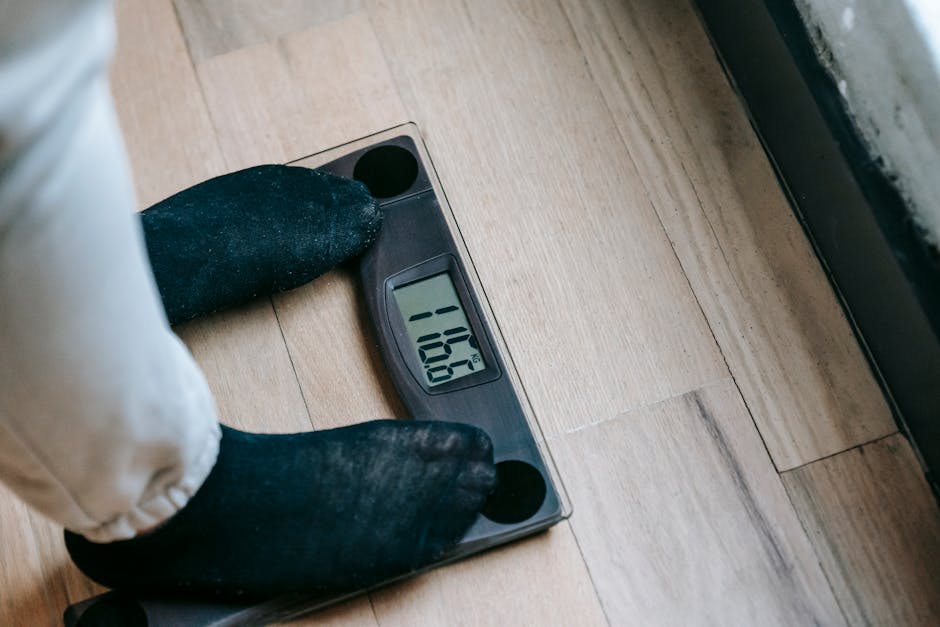Introduction to Effective Weight Loss
Weight loss isn’t just about shedding pounds; it’s about adopting a healthier lifestyle that promotes well-being. Experts agree that the key to effective weight loss lies in a balanced approach combining diet, exercise, and good sleep habits. It’s not about short-term diets that promise quick results. Instead, it’s about making sustainable changes to your daily routines. This means eating nutritious foods that fuel your body, engaging in physical activities that you enjoy, and ensuring you get enough rest every night. Remember, effective weight loss is a journey, not a race. It requires patience, commitment, and a positive mindset. By focusing on these principles, you’re setting the stage for long-term success in your weight loss journey.
The Role of Diet in Effective Weight Loss
When it comes to shredding pounds, what you eat takes the front seat. Experts agree that a balanced diet is key. You can’t out-exercise a bad diet. So, what’s the deal with dieting for weight loss? It boils down to consuming fewer calories than you burn. But, it’s not just about eating less; it’s about eating right. Fill your plate with plenty of veggies, lean proteins, whole grains, and healthy fats. These foods keep you full longer, so you’re less likely to reach for junk.
There’s a lot of noise about cutting carbs or fat for quick weight loss. Yet, sustainable weight loss isn’t about banning food groups. It’s about moderation and making healthier choices. Also, hydration plays a massive role. Sometimes, thirst masquerades as hunger. Drinking enough water can keep unnecessary snacking at bay.
Remember, there’s no one-size-fits-all diet. The best diet is one you can stick to long-term. It’s more about changing your lifestyle than following a strict diet for a few weeks. Think of it as a marathon, not a sprint.
So, eat mindfully, listen to your body, and tweak your diet as you go. Your future self will thank you.
The Importance of Regular Exercise
Regular exercise is your best friend when it comes to weight loss. It’s not just about burning calories; it’s about improving your heart health, boosting your mood, and increasing your overall strength. Experts say that mixing cardio with strength training is the key. Cardio burns the calories, sure, but strength training helps you build muscle, which burns more calories even when you’re just sitting around. Aim for at least 150 minutes of moderate intensity or 75 minutes of high-intensity exercise each week. And remember, consistency beats intensity every time. You don’t have to run a marathon; even a daily walk can make a big difference. So, lace up those sneakers and get moving!
Behavioral Changes for Long-Term Success
Experts stress the importance of behavioral changes for weight loss that sticks. It’s not just about dieting for a few weeks or hitting the gym hard for a month. For long-term success, it’s all about making small, manageable shifts in your daily routines. Start simple. Swap out sugary drinks for water. Take the stairs instead of the elevator. Eat slower to help you feel fuller faster. Crucially, set realistic goals. Losing 1 to 2 pounds a week is achievable and healthy. Also, remember, slip-ups are part of the journey. Don’t beat yourself up. Instead, understand why it happened and move forward. Accountability helps too. Share your goals with friends or family. Better yet, find a weight loss buddy. You’ll motivate each other. Finally, keep track of your progress. A journal or an app can do wonders for staying on course. These behavioral tweaks might seem small, but combined, they pave the way for lasting weight loss and a healthier lifestyle.
The Impact of Technology on Weight Loss
Today, technology is changing how we lose weight, making it easier and more efficient. Think smart scales, fitness trackers, and mobile apps. These gadgets and apps do a lot more than just track your journey. They motivate you by showing progress in real-time, help you understand your eating habits, and even offer virtual workouts. Fitness trackers, for instance, push you to move more by setting daily step goals. Apps can track what you eat, helping you stay within your calorie limit. Plus, online communities provide support and motivation from people on the same journey. All these tools mean that technology isn’t just a helper; it’s a game-changer in losing weight. With technology, you’ve got personal coaching, nutrition advice, and a support system, all in your pocket.
Expert Advice on Nutritional Supplements
Experts stress the importance of caution when it comes to nutritional supplements for weight loss. Here’s the deal: not all supplements are created equal. The market is flooded with products promising quick fixes, but the reality is, effective weight loss comes down to a balanced diet and regular exercise. Supplements can support your journey but shouldn’t be the main focus. Look for supplements with natural ingredients and avoid anything with a list of side effects longer than your shopping list. Always check with a healthcare professional before adding any supplement to your routine. Remember, there’s no magic pill for weight loss. Supplements can help fill nutritional gaps or boost your metabolism, but they work best when paired with healthier lifestyle choices. Stay informed, stay safe.
Intermittent Fasting: A New Trend in Weight Loss
Intermittent fasting has quickly become a go-to strategy for shedding pounds. This isn’t about what you eat but when you eat. Essentially, you cycle between periods of eating and fasting. The idea is, by doing this, you force your body to burn fat more effectively. There are several methods, but the 16⁄8 method is popular. That’s fasting for 16 hours and eating during an 8-hour window. People love it because it’s simple and flexible. You’re not counting calories or measuring portions. Instead, focus on eating healthy during your eating window. Studies suggest it not only helps with weight loss but improves heart health and brain function. Plus, you might find it easier to stick with compared to traditional diets. Remember, though, it’s not a free pass to eat junk food when you’re not fasting. The quality of what you eat still matters a lot.
The Psychological Aspect of Losing Weight
Losing weight isn’t just about hitting the gym or cutting calories. There’s a huge mental game involved. Experts agree that your mindset plays a crucial part in your weight loss journey. It all starts with setting realistic goals. Don’t aim to shed 30 pounds in a month; it’s not just improbable, it’s unhealthy. Aim for goals that challenge you without pushing you to the brink. Next, understand that slip-ups will happen. It’s normal. What matters is how you bounce back. Forgiving yourself and moving forward is better than beating yourself up. Also, surround yourself with support. Friends, family, or online communities can provide encouragement and advice. Remember, losing weight is as much about believing you can do it as it is about the actual steps you take. Keep your mind focused, stay positive, and you’ll find your path to success much smoother.
Common Misconceptions About Effective Weight Loss
A lot of what you’ve heard about losing weight is probably wrong. First off, skipping meals doesn’t help. It might even make you gain weight. Your body thinks it’s starving, so it holds onto calories the next time you eat. Another big myth is that carbs are the enemy. Not true. Your body needs carbs for energy. It’s about the quality of carbs and not cutting them off completely. Eating fat makes you fat? Nope. Healthy fats from foods like avocados and nuts are good for you and are an essential part of a balanced diet. And, exercise alone won’t cut it. Sure, it’s important for overall health, but diet plays a bigger role in weight loss. Last thing, rapid weight loss is not sustainable. Quick fixes can lead to quick gains back. Aim for slow, steady weight loss. Remember, it’s a journey, not a race.
Summary and Final Thoughts from Experts
When it comes down to it, the experts agree on a few fundamental principles for effective weight loss. Firstly, it’s all about creating a sustainable lifestyle change. Crash diets might give you quick results, but they’re not something you can maintain. What’s more important is finding a balance — eating nutritious food most of the time but still allowing yourself some treats. Secondly, exercise cannot be ignored. It’s not just about burning calories; it’s about building a healthier body and mind. And lastly, there’s no one-size-fits-all. What works for one person might not work for another, so it’s crucial to listen to your body and adjust your diet and exercise plan accordingly. It might seem simple, but the depth of these principles lies in their execution. Stick to these basics, throw in some patience and persistence, and you’re on your way to a healthier you.


